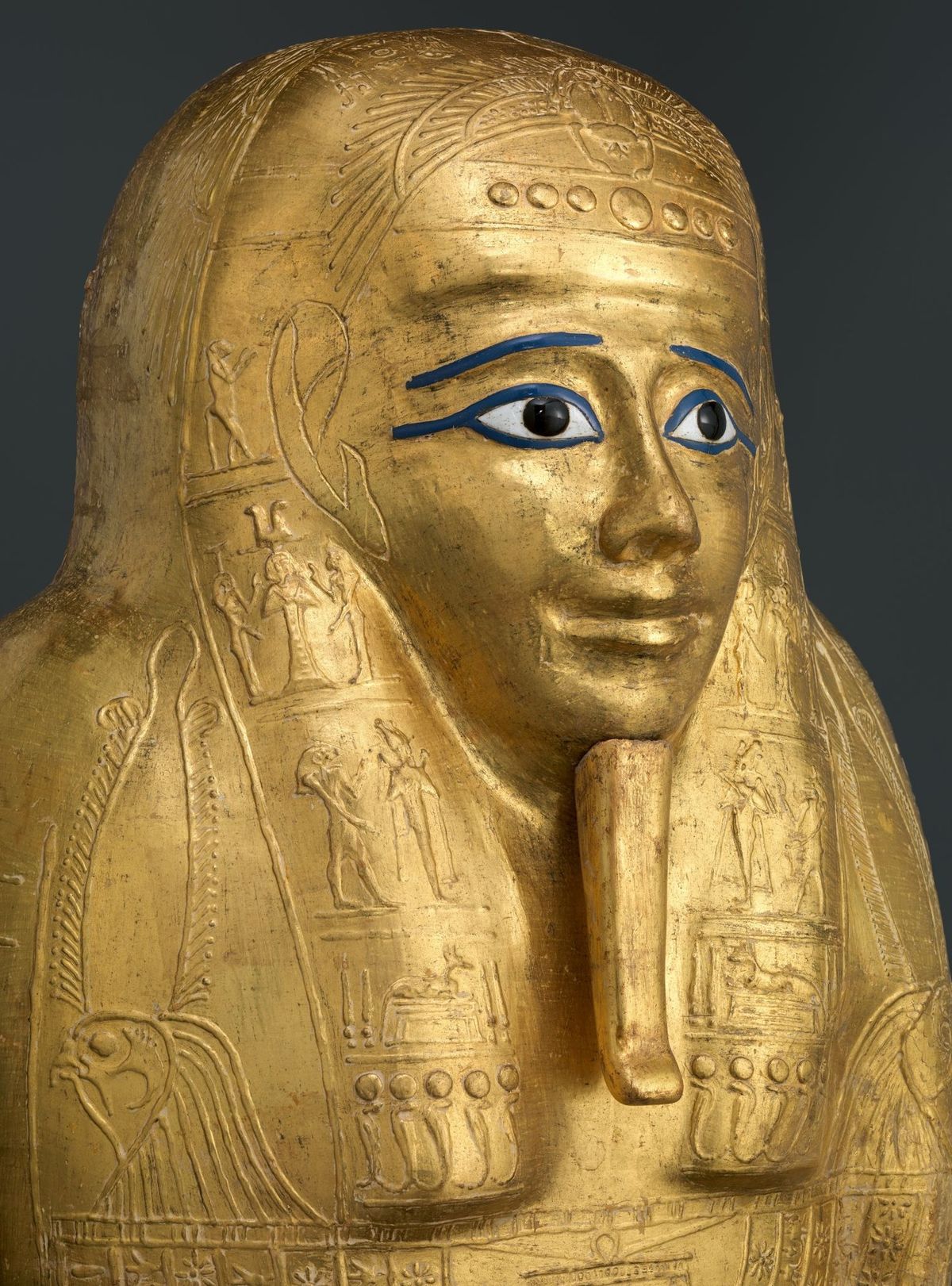The suspected head of an alleged Egyptian antiquities trafficking ring, Serop Simonian, has been arrested in Germany and transferred to France.
Investigators believe the octogenarian is the source behind a string of allegedly smuggled Egyptian antiquities sold for around €60m to the Metropolitan Museum of Art in New York and the Louvre Abu Dhabi, via the Paris-based expert Christophe Kunicki.
The criminal investigations into the widespread trafficking of these antiquities have seen the seizure of a gold sarcophagus and five other works from the Met and the indictment of seven dealers, collectors and curators in Paris, including Jean-Luc Martinez, the former president of the Musée du Louvre.
A European warrant for Simonian’s arrest was issued by French authorities leading the criminal investigation. The German dealer was charged in September with trafficking and laundering, and jailed in Paris, according to legal sources.
Simonian denies wrongdoing. He told The Art Newspaper last year that the antiquities in question came from the collection of his family, who had been dealers in Cairo. He said most of the objects had been exported in the 1970s, a time when such a trade was legally permitted, and were held for decades in several German museums.
In March 2022, the director of his Hamburg-based gallery, Roben Dib, was also transferred and charged in Paris for his role in the sales of several antiquities. He also maintains his innocence.
In another development in the case, according to the same sources, investigators suspect that Jean-François Charnier, the former scientific director of Agence France Muséums, which advised the Emirates on the development of the Louvre Abu-Dhabi, might have “received favours" from a New York dealer, Hicham Aboutaam. His gallery Phoenix Ancient Art sold eight works to the Louvre Abu Dhabi between 2008 and 2015.
None of these transactions are considered suspicious and Aboutaam is not involved in the antiquities trafficking case. But, according to the French art police, evidence was discovered on seized computers of trips by Charnier and others close to him, including a family vacation to the Maldives, that had been paid for by Aboutaam or his company.
Charnier, who was charged in July 2022 for his role in the sale of the Egyptian antiquities to the Louvre Abu Dhabi, has not been charged over these new revelations. But he confirmed the information to The Art Newspaper saying he had “made an error of judgement”, and added there had been “no quid pro quo”, insisting that these trips came after the sales from Phoenix Ancient Art to the Louvre Abu Dhabi.
Charnier also confirmed he had “never doubted the provenance of the Egyptian antiquities purchased by Abu Dhabi”, which are at the core of the investigation.
Contacted in New York, a spokesperson for Phoenix Gallery also said “there was no quid pro quo“ and these trips were actually considered as “loans”. The spokesperson added: “These loans for the airline tickets have absolutely nothing to do with the business relationship between the Louvre Abu Dhabi and Phoenix Ancient Art. The gallery sold impeccable antiquities, all of which are published between 1838 and 1969, to the museum for eight long years before these flights took place“.


